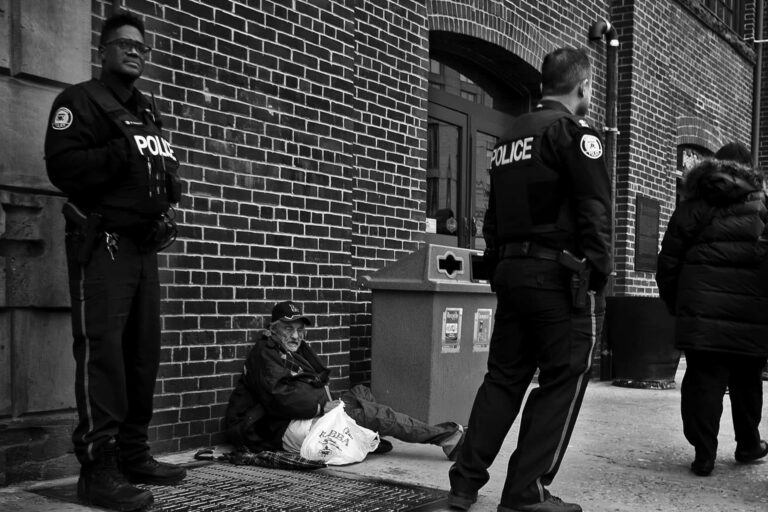Table of Contents
- Mental Health Crises and Law Enforcement Response Challenges
- Risks and Consequences of Taser Use on Individuals Experiencing Mental Health Episodes
- Training Gaps and the Need for Specialized Mental Health Intervention Units
- Policy Recommendations for Safer Crisis Management and Alternative De-escalation Methods
- To Wrap It Up
Mental Health Crises and Law Enforcement Response Challenges
Law enforcement officers frequently find themselves at the frontline of mental health crises, a responsibility for which many feel inadequately prepared. The use of Tasers in these situations raises critical concerns, as such devices can exacerbate the vulnerabilities of individuals experiencing psychological distress. Officers face complex challenges, including:
- Rapid assessment of whether an individual’s behavior stems from mental illness or posing an immediate threat
- Balancing the need for de-escalation with maintaining officer and public safety
- Lack of specialized training tailored to mental health intervention during high-pressure encounters
These factors contribute to a precarious environment where the possibility of escalation is high. In many cases, the deployment of a Taser may unintentionally increase agitation or cause physical harm, especially when alternative, less-lethal interventions might be more appropriate. The tension between ensuring safety and respecting the dignity and rights of individuals in crisis underscores the urgent need for enhanced training, improved protocols, and stronger collaboration between police forces and mental health professionals.
Risks and Consequences of Taser Use on Individuals Experiencing Mental Health Episodes
When Tasers are deployed on individuals undergoing mental health crises, the outcomes can be far-reaching and severe. Beyond the immediate physical harm, which may include burns, muscle contractions, or cardiac complications, there is a significant psychological toll that often goes unaddressed. The shock of the Taser can exacerbate existing mental conditions, increasing confusion, anxiety, and distrust towards law enforcement and medical professionals. In some cases, the use of such devices can escalate situations rather than defuse them, potentially leading to unintended injury or prolonged trauma for those already in vulnerable states.
Key risks and consequences include:
- Physical injury: Higher risk of falls, fractures, or cardiac arrest, especially in individuals with underlying health issues.
- Psychological distress: Intensified panic attacks, psychosis, or post-traumatic stress disorder triggered or worsened by the encounter.
- Escalation of crisis: Use of force may provoke increased agitation or aggression, reducing the chance of peaceful resolution.
- Barriers to seeking help: Survivors may develop apprehension towards emergency services, hindering future intervention efforts.
Training Gaps and the Need for Specialized Mental Health Intervention Units
Despite ongoing efforts to improve crisis response, significant training gaps remain within police forces when it comes to managing mental health emergencies. Officers often encounter situations that demand more than standard law enforcement tactics, yet many receive only minimal education on recognizing and de-escalating mental health crises. This deficiency can lead to increased reliance on forceful measures, including taser use, which may exacerbate the risk to vulnerable individuals instead of providing the intended resolution.
Addressing these challenges requires the implementation of specialized mental health intervention units equipped with personnel trained extensively in psychiatric and de-escalation techniques. These units can act as first responders or partners to law enforcement, bringing expertise that prioritizes safety and empathy. Key elements of effective intervention strategies include:
- Comprehensive mental health crisis training for all first responders
- Collaboration between police and licensed mental health professionals
- Use of nonviolent communication and crisis intervention techniques
- Availability of mobile crisis teams dedicated to mental health emergencies
Policy Recommendations for Safer Crisis Management and Alternative De-escalation Methods
To mitigate the risks associated with Taser deployment during mental health emergencies, authorities must prioritize comprehensive training for first responders focused on crisis intervention and de-escalation techniques tailored explicitly to mental health challenges. This includes recognizing symptoms, employing verbal calming strategies, and understanding how to engage effectively with individuals experiencing psychological distress. Equipping officers with these skills reduces reliance on force and fosters more compassionate interactions.
Policy changes should also mandate the integration of mental health professionals in emergency response teams. Collaborative approaches, such as co-responder models where clinicians accompany law enforcement, have shown promising results in safely resolving crises without escalating violence. Additionally, investing in community-based alternatives like mobile crisis units and expanding access to mental health services can provide timely support before situations reach a tipping point, ensuring vulnerable individuals receive appropriate care rather than coercive intervention.
- Implement ongoing crisis intervention training emphasizing empathy and communication.
- Create protocols to involve mental health specialists in field responses.
- Develop community outreach programs focused on early identification and support.
- Review and revise policies to limit Taser use strictly to scenarios posing imminent harm.
To Wrap It Up
In conclusion, the intersection of mental health crises and police Taser use raises critical concerns that demand careful attention from law enforcement agencies, policymakers, and mental health professionals. While Tasers can provide a less lethal alternative to firearms, their deployment in situations involving individuals experiencing mental health emergencies requires stringent guidelines, proper training, and a commitment to de-escalation wherever possible. Addressing these challenges is essential to safeguarding both public safety and the rights and well-being of vulnerable populations. Ongoing dialogue and evidence-based reforms will be key to ensuring that responses to mental health crises are both effective and humane.Check Our Other Blogs
- StunGun – Your Trusted Source for Stun Guns, Laws, and Self-Defense Tips
- PepperSprayLaws – Your Trusted Resource for Pepper Spray Information
- StunGunLaws – Your Trusted Guide to Stun Gun Legality and Safety





